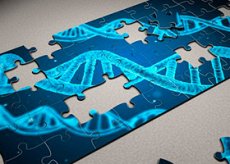New publications
Humans are immune to CRISPR
Last reviewed: 02.07.2025

All iLive content is medically reviewed or fact checked to ensure as much factual accuracy as possible.
We have strict sourcing guidelines and only link to reputable media sites, academic research institutions and, whenever possible, medically peer reviewed studies. Note that the numbers in parentheses ([1], [2], etc.) are clickable links to these studies.
If you feel that any of our content is inaccurate, out-of-date, or otherwise questionable, please select it and press Ctrl + Enter.

Probably, most readers know about the existence of the CRISPR genome editor, around which scientific discussions have been going on for a long time and various discoveries have been made. However, as experts from Stanford University assure, some people are able to have immune protection against the introduction into DNA, and this makes the use of this technology impractical.
Scientists from Stanford University have made an unexpected discovery during their research: most of humanity has immune protection against the CRISPR genetic editing method.
The experts analyzed the blood of more than twenty newborn babies and twelve middle-aged volunteers. The analysis took into account the content of antibodies of the Cas9 protein type - this is the type used to revise and cut the DNA helix. The experts saw that more than 65% of the subjects had T cells that created protection against the influence of Cas9.
What the specialists discovered demonstrates that genetic treatment associated with the removal of mutations will not lead to a successful result and cannot be used in relation to people. The protective process will block the possibility of using the CRISPR method, which should help cure serious diseases. "Moreover, immunity can provoke the development of significant intoxication of the human body," says Dr. Matthew Porteus.
The point is that the more popular protein type Cas9, actively used in CRISPR-related research, is obtained from a pair of microorganisms - Staphylococcus aureus and Streptococcus pyogenes. These are the bacteria that systematically enter the human body, so the human immune system "knows them by sight."
However, there is a solution to this problem. It is likely that scientists will begin to develop additional advanced technologies that will use microbes that are not on the list of "frequent guests" in the human body. For example, it is possible to use microorganisms living in the depths of hydrothermal vents. Alternatively, the technique of in vitro genetic editing of cellular structures may be successful.
Scientists have used the "genetic knife" - CRISPR technology - quite recently. The task of specialists was to cure patients from Hunter syndrome - a complex, albeit rare, genetic pathology. The sick person was injected with several billion copied corrective genes, in combination with a special “toolkit” that cuts the DNA helix. Further experiments were planned, in which more patients were to participate – presumably, those suffering from other serious diseases. For example, they could become patients with phenylketonuria or a disease such as hemophilia B.
The progress and results of the work were published in bioRxiv, as well as in MIT Technology Review.

 [
[